Walk at Las Vegas park aids group for those with eating disorders
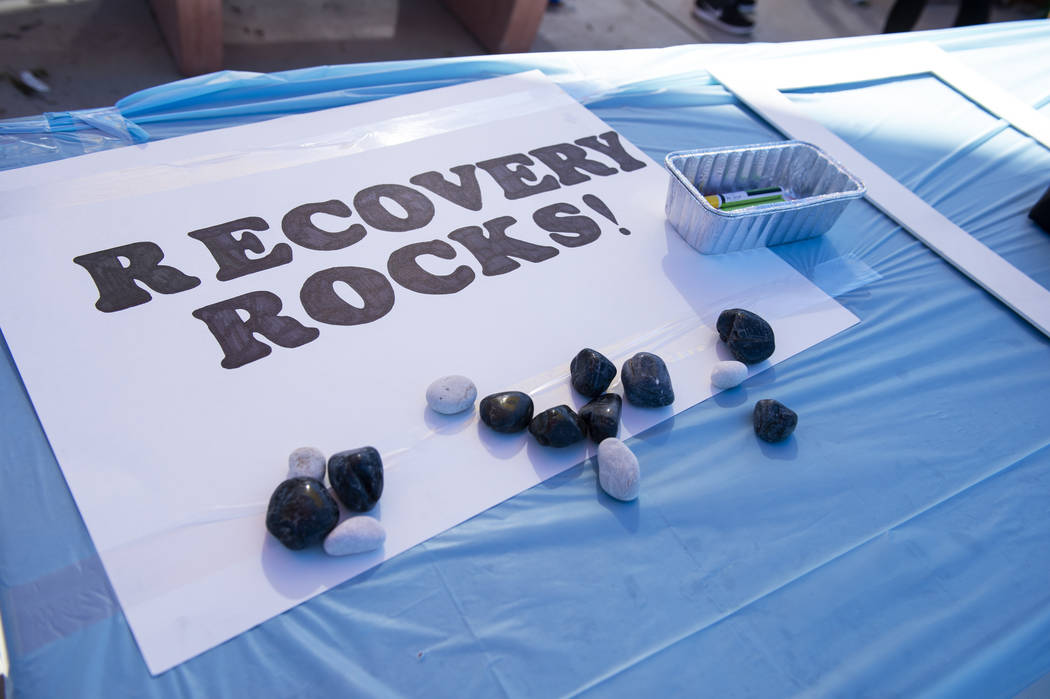
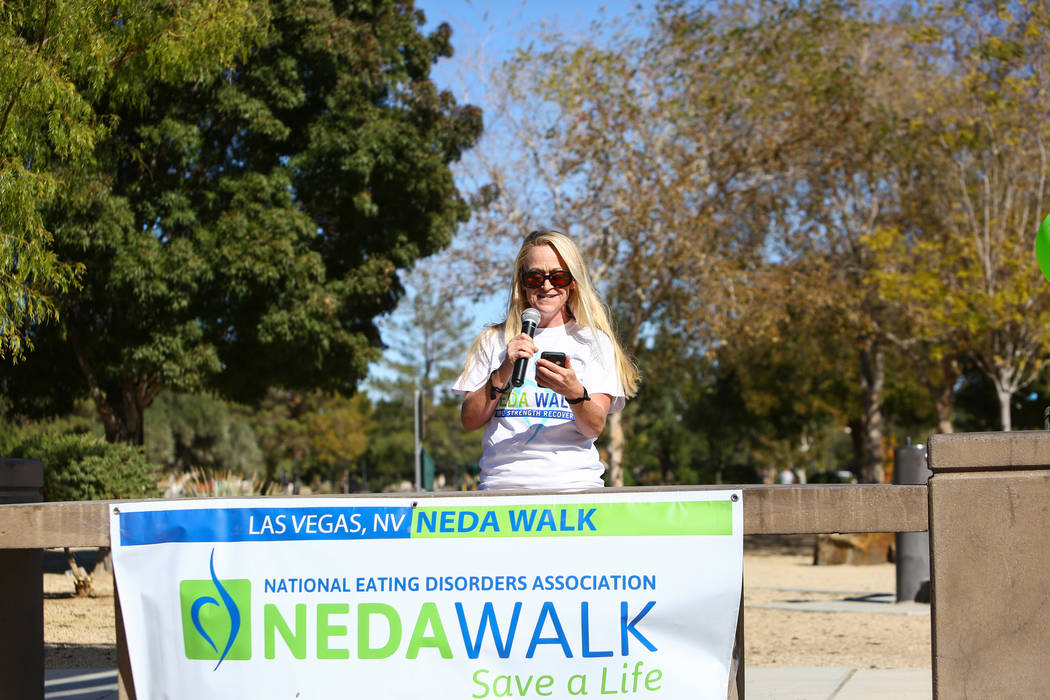
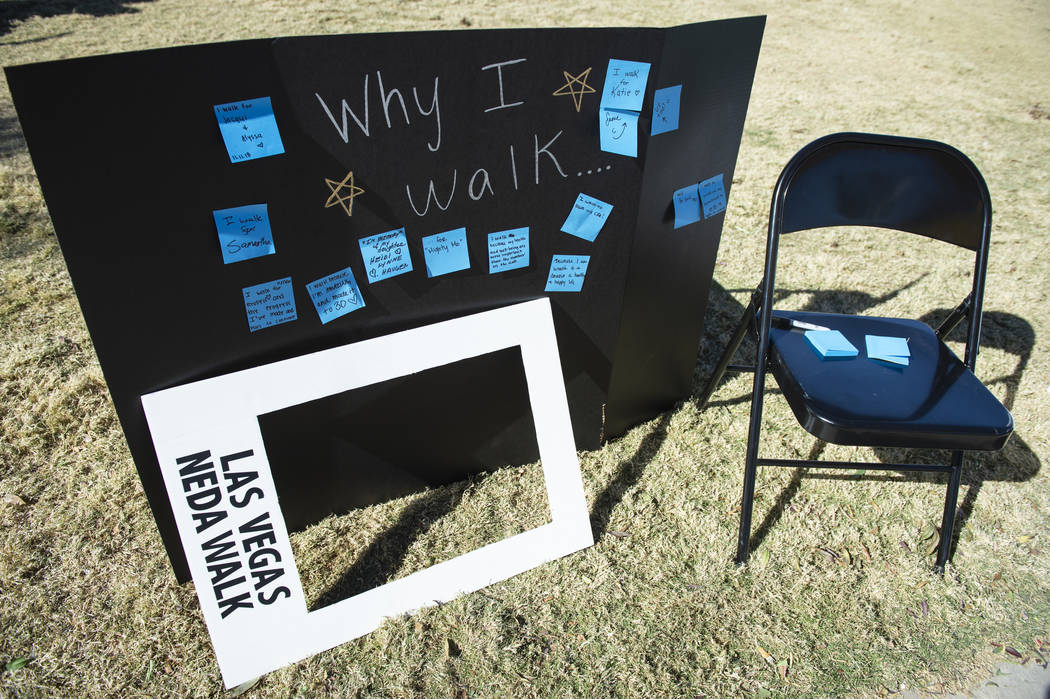
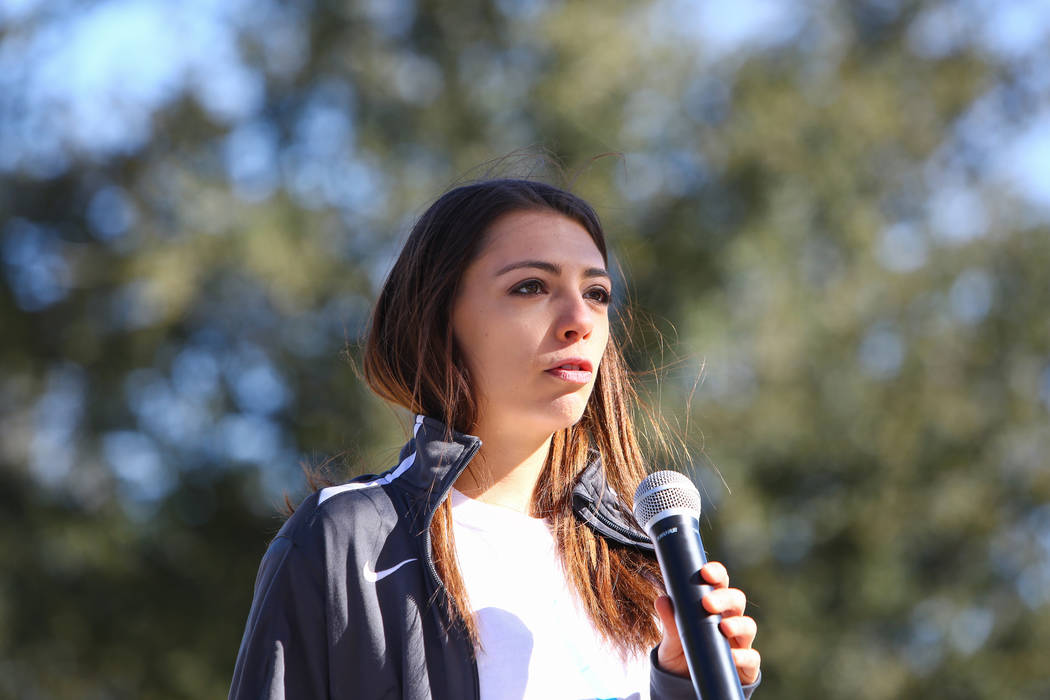
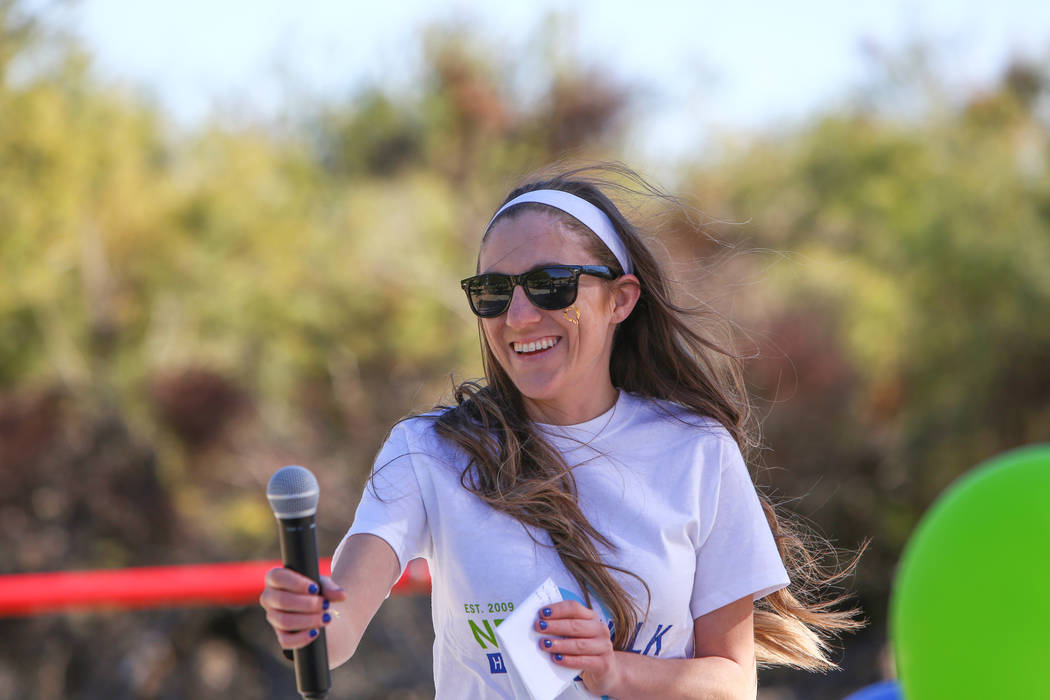
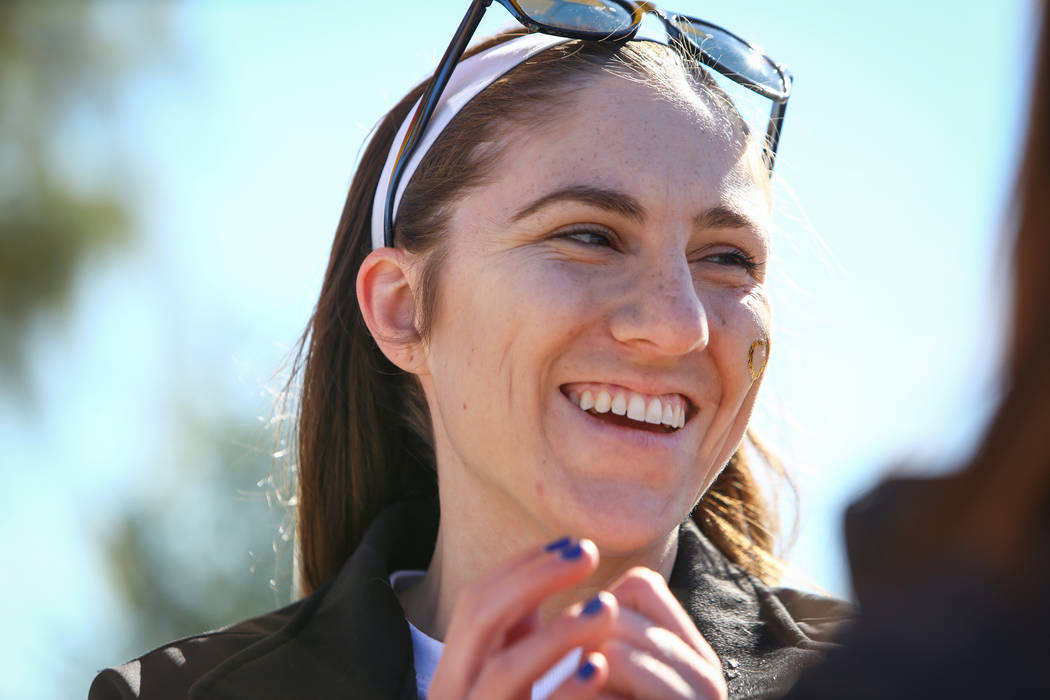
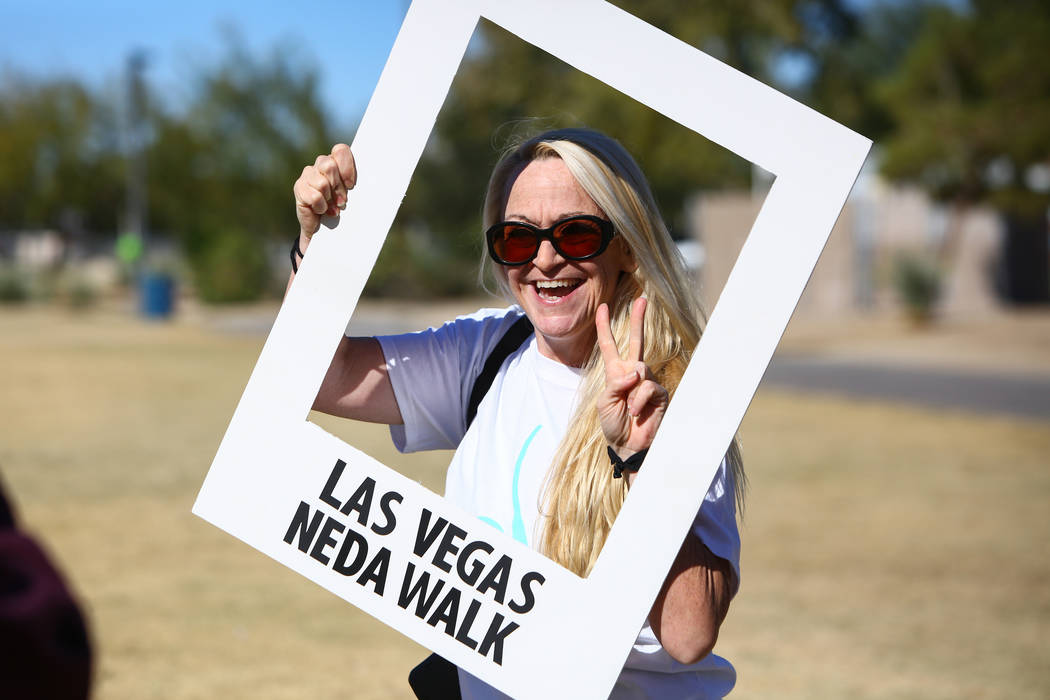
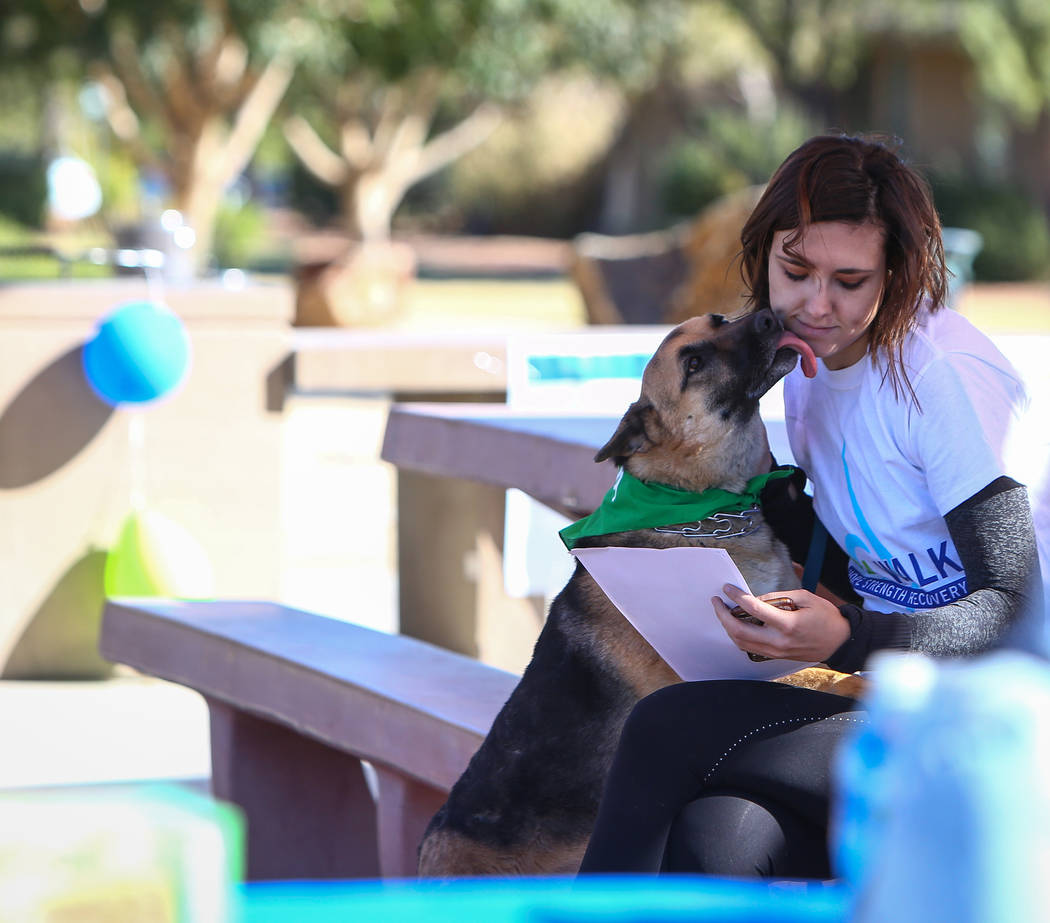
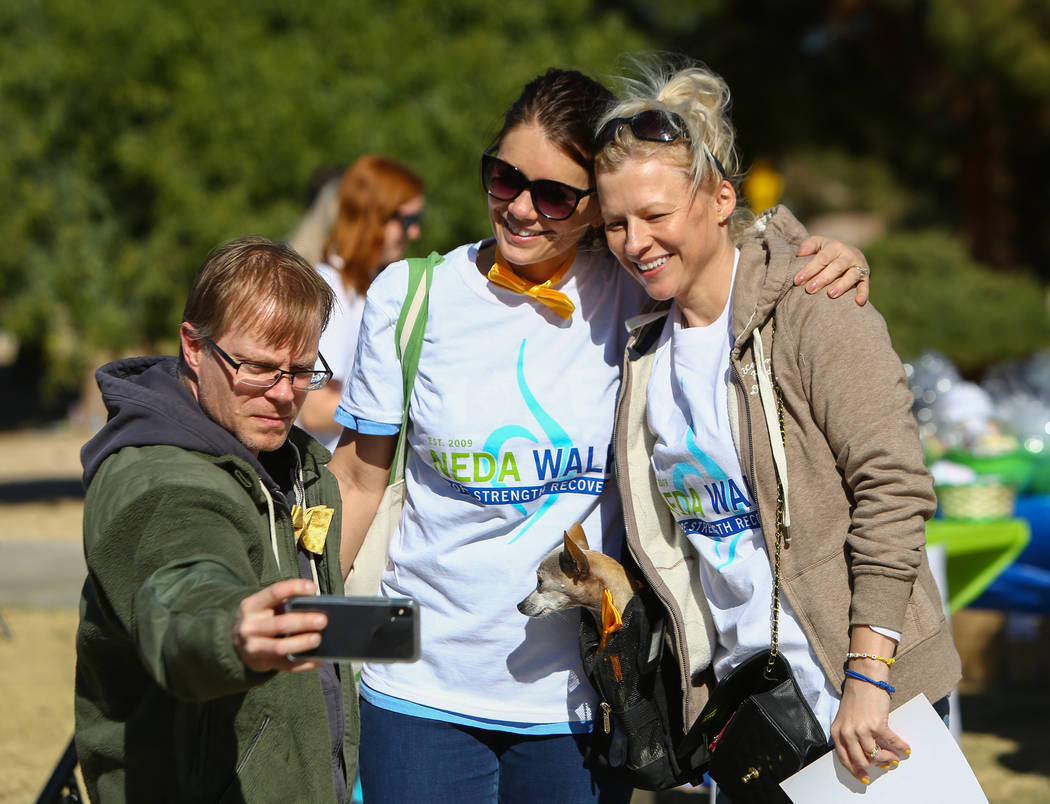
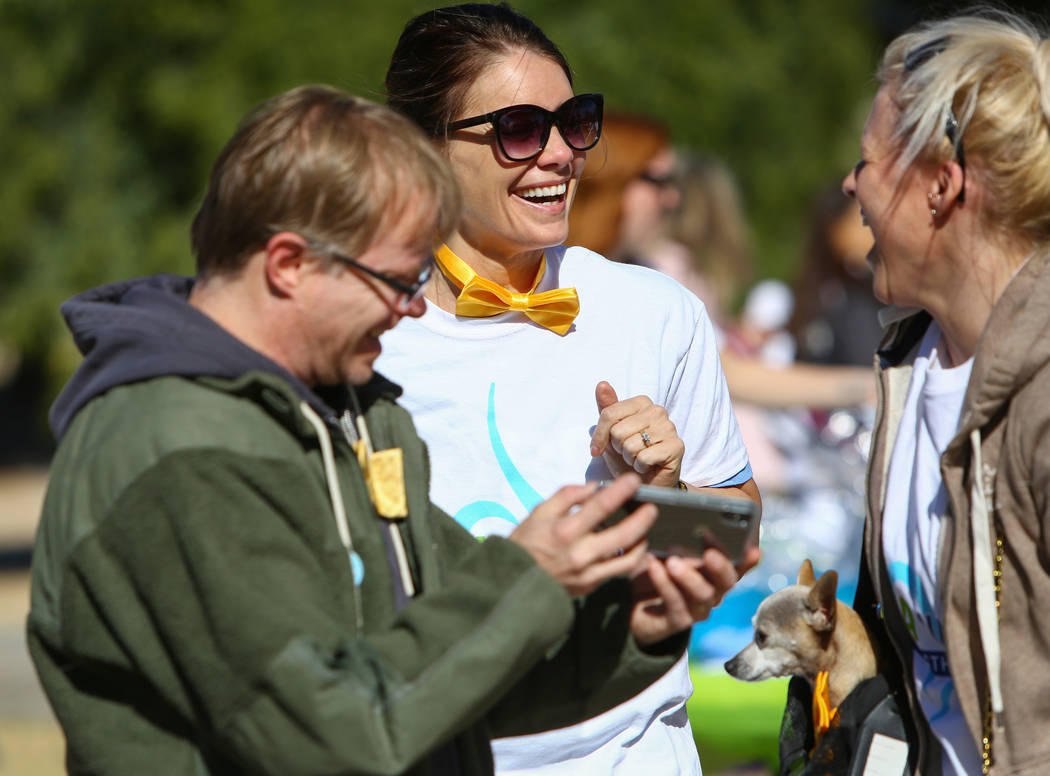
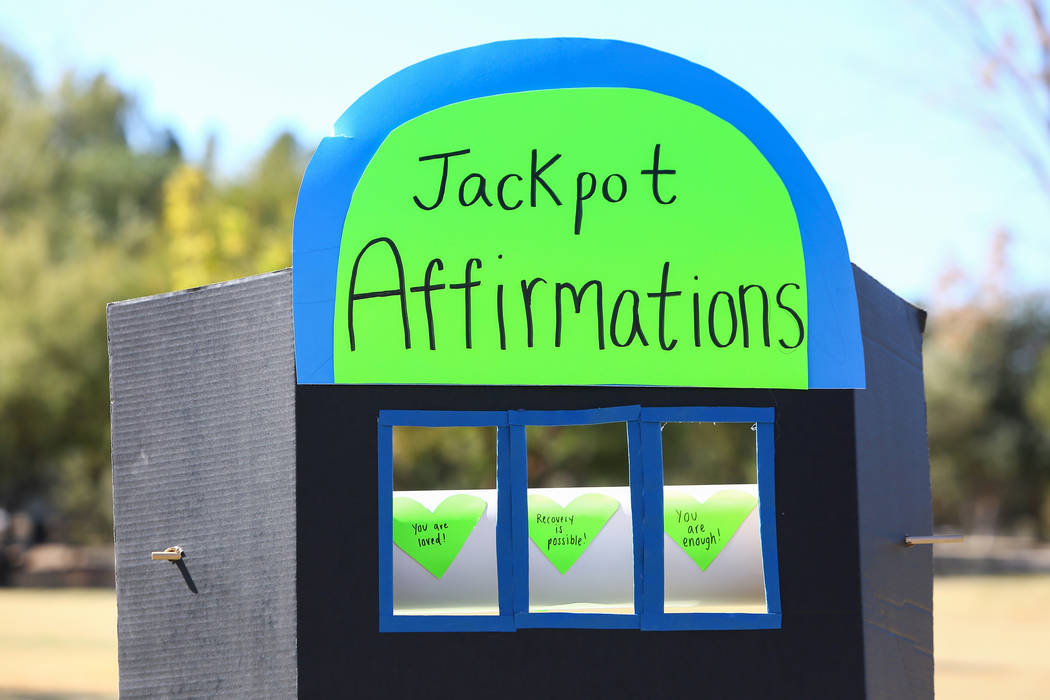
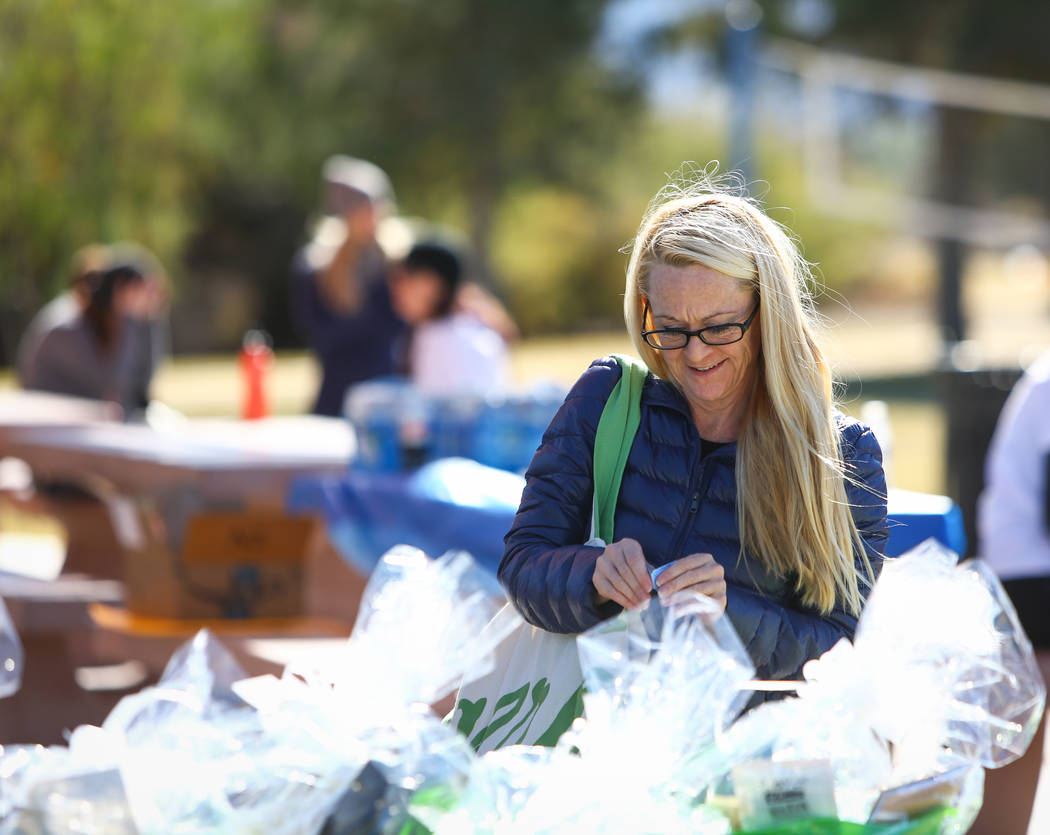
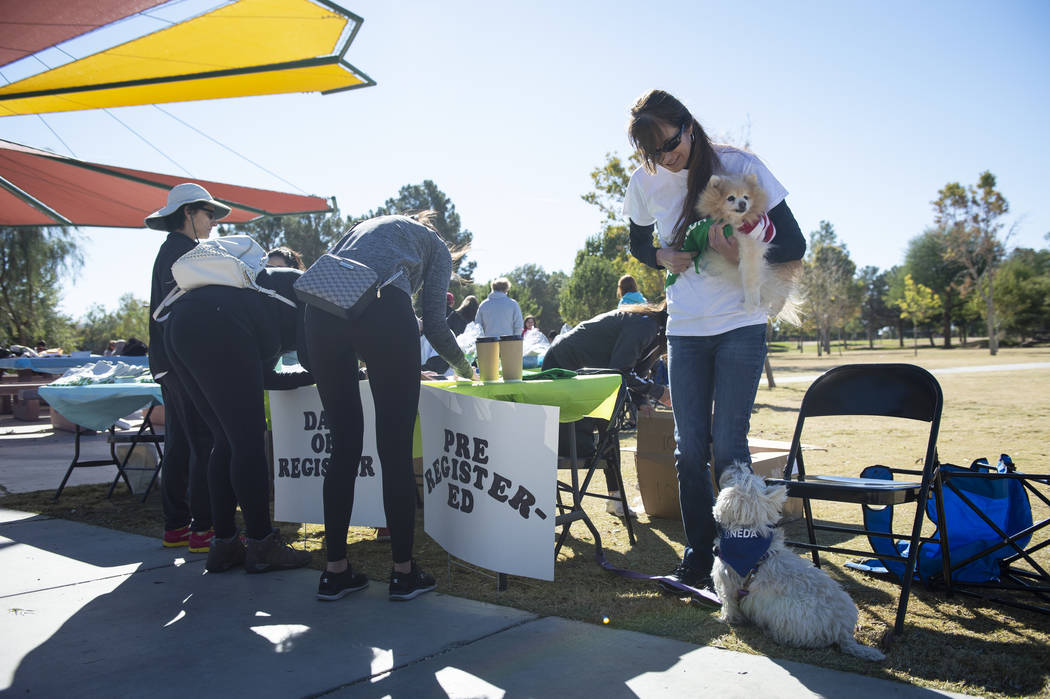
Summerlin resident Katie Fiorillo, 26, was 17 when she was diagnosed with anorexia. Overwhelmed by the combined stress of high school, extracurricular activities and applying for colleges, she started eating less and less, withdrawing from family and friends, losing a significant amount of weight.
“I definitely saw something wrong,” Fiorillo said. “I just wasn’t sure what it was. I always kind of had those underlying perfectionism type beliefs and self-doubting, so it almost seemed normal to me. After I started health-wise not doing as well, I realized it might be worse than I thought. I just didn’t feel like doing anything. I wasn’t interested in activities I usually was. I just thought it was going to be my life.”
Anorexia nervosa is an eating disorder that causes people to obsess about weight and what they eat — and to view themselves as overweight even if they are significantly underweight. Fiorillo started seeing an outpatient therapist and dietitian after her diagnosis and slowly worked to overcome the disease. But even after visiting a residential treatment center in her home state of Florida, she still struggled.
“There’s no one thing that fixes it,” Fiorillo said. “It’s definitely more of a gradual process versus one thing that kind of just clicks and you feel better, which is what I always felt it would be like. … It takes a lot of time. The recovery is a really long process. Being patient is the most important thing. It’s scary. Not a lot of people talk about it, and it’s hard to get the support that you need both medically and therapy-wise just because there aren’t lot of people that specialize in it.”
Fiorillo moved to Las Vegas from Florida a little over a year ago. After a 10-year battle with anorexia, she’s finally in a place where she’s ready to give back, she said. This year, she’s organizing the third National Eating Disorders Association (NEDA) Walk in Las Vegas, set for 10:30 a.m. Sunday.
“Vegas is very much lacking in the eating disorder community,” Fiorillo said. “So I think it’s really important to begin that community of people even if it’s just once a year.”
Samantha Corey of Summerlin, a friend of Fiorillo’s, was 14 when she noticed a change in her mood and a drastic drop in weight. She’d recently moved to the Las Vegas Valley from Denver and thought nothing of it, as she was a dancer in school, and teachers were accustomed to seeing students lose weight. She was diagnosed with anorexia soon after.
“For me, it started out as me just wanting to eat healthy,” Corey, 21, said. “I took a health class and they had a unit on nutrition. That’s when I first started looking at what I was eating. From there, it spiraled out of control. I got into this habit of focusing on calories. Over time, it just got more and more obsessive. I became isolated. I wanted to spend more time alone didn’t want to go to functions; didn’t even want to go to my dance events. I didn’t have the energy for it.”
Due to the lack of facilities in the Las Vegas area, Corey said, she was sent to a facility back in Denver. She organized the first NEDA walk in 2014 and has since advocated to raise awareness of eating disorders in Las Vegas.
“My family was shocked by the lack of treatment centers here,” Corey said. “And I ended up going out of state because there was no facility in Vegas for it. I just feel the walk is the first step in opening up people’s eyes to what Las Vegas needs as far as psychological treatment, dietitians … everything that’s encompassed in recovery.”
According to NEDA’s website, anorexia is the third-most-common chronic disease among youth, after asthma and Type 1 diabetes. People ages 15-24 with anorexia have 10 times the risk of dying compared with their same-aged peers.
“Eating disorders have the highest mortality rate of all psychiatric illnesses,” said Dr. Lindsey Ricciardi, an eating disorders specialist who has an outpatient facility in southwest Las Vegas. “A lot of those have to do with suicide, but most are from cardiac arrest. Most people who have eating disorders you could never tell by looking at them, and that’s a huge problem in our training; we’re looking for that severely emaciated person, when many of my clients look like the cover of a health-and-fitness magazine.”
Ricciardi has worked with people suffering from eating disorders for over 10 years and has seen hundreds of cases in the Las Vegas area. She currently has about 20 patients. On Sunday, she’ll walk in honor of a former patient who died.
“I don’t think people understand the reality of it,” Ricciardi said. “Her death began with a diet that started 20 years ago. It became an obsession. She died on the way driving to Utah to go to residential treatment center. She was trying to get help.”
Contact Mia Sims at msims@
If you go
What: NEDA Walk Las Vegas
When: 10:30 a.m. Sunday
Where: Sunset Park, 2601 E. Sunset Road
More information: nedawalk.org/lasvegas2018
NEDA tools
Online self-screening: nationaleatingdisorders.org/screening-tool
Help line number: 800-931-2237. It’s staffed from 6 a.m.-6 p.m. Mondays through Thursdays and 6 a.m.-2 p.m. Fridays.
Help line chat: nationaleatingdisorders.org/helpline-chat













